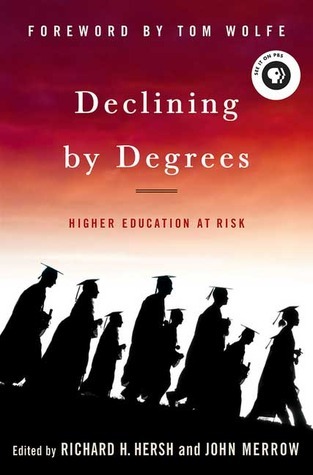A collection of essays about the state of higher education in America, it is simultaneously fascinating and depressing. The essays in the middle of the book were the strongest for me, and while a few of them came up short (in particular, one discussing diversity in higher education turned what I believe is a class issue into a racial one - while closely linked, I continue to dislike this tendency to confuse race and class issues as it hurts the very people these discussions and distinctions are intended to help), as a whole this book is an enlightening read. While not comprehensive, the differing opinions and backgrounds provided sufficient depth to give me food for thought. I wish I had read something like this before I applied to college, although I wonder how much of it would have sunk in and registered with me at that point in my life. Highly recommended.

